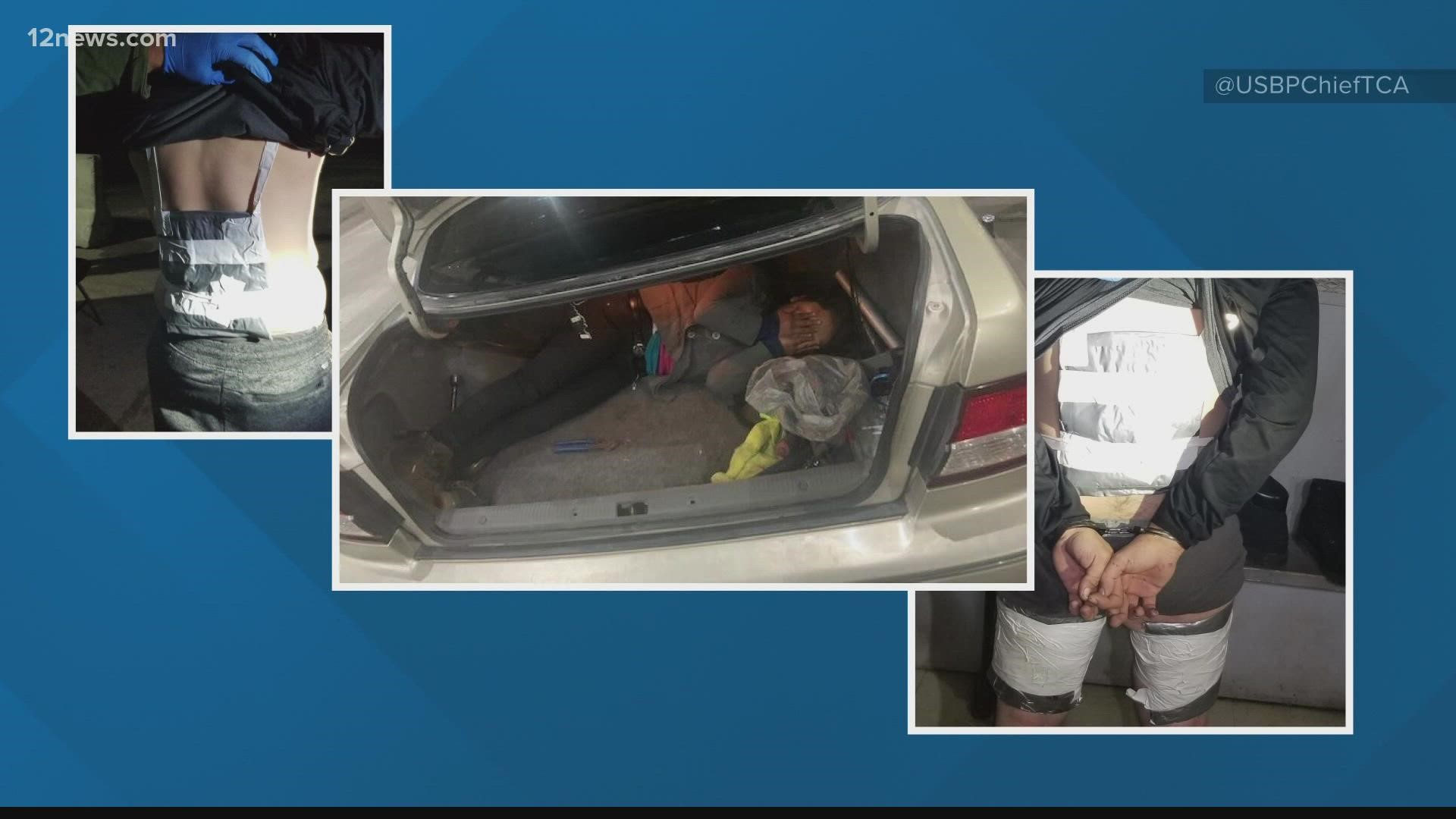ARIZONA, USA — Drug cartels are using popular virtual games to recruit for real-world crimes.
Federal officials say criminal enterprises are now finding people to smuggle drugs or engage in human trafficking, by recruiting them while playing online games, which typically have chatrooms where players can talk with strangers.
“Anybody that’s 16 and over that already has a driver’s license is a target to get recruited for doing smuggling,” said Jesus Vasavilbaso, Border Patrol spokesperson for the Tucson sector. “People from the Phoenix area are heavily being recruited.”
One of those people was revealed in federal court documents, as Alyssa Michelle Navarro, 25, from Phoenix.
She was arrested in the Luckeville Port of entry last November with nearly 130 pounds of liquid meth hidden in the car’s gas tank, investigators said.
The federal complaint filed against Navarro alleges that she told agents “That in approximately January 2021 she met a man with the user name 'georgebrr' through Grand Theft Auto, an online gaming platform.”
Navarro and George moved their conversation to Snapchat and met in person multiple times, investigators said.
While talking on Snapchat, Navarro allegedly told authorities George randomly messaged her one day and asked if she wanted to make money and work as a “runner” to transport the merchandise, such as electronics, from Phoenix to Mexico, court records said.
Navarro was said to earn $1,000 to $2,000 per trip, depending on the “load,” the government said.
On November 22, Navarro took a shuttle bus from Phoenix to Sonoyta, Mexico, paid for by “Alfredo,” the man George said he worked for, the complaint said.
When she arrived, Alfredo picked her up in a Jeep Cherokee, the same vehicle she was driving the day of her arrest, and they went to dinner, where she was told she would be taking merchandise once a week, such as TVs and electronics that were going to be sold in Mexico, federal records said.
The next day, Navarro and Alfredo went for breakfast in the red Jeep Cherokee, and he told her he was giving her the vehicle to be used for the transportation of the merchandise, investigators said.
Navarro told agents she was given money for gas and instructed to fill up at specific gas stations regularly to maintain a full fuel tank, court records said.
Federal paperwork said she was asked to send Alfredo messages to keep him updated on her trip and to leave the vehicle with an unknown individual.
Navarro told investigators the men asked her if she thought the job offer was off and if it didn’t seem too good to be true. She said yes, adding that she felt weird on the bus and thought to herself “what am I doing?” the federal complaint said.
Agents were granted consent by Navarro to go through her phone and found messages referencing “merchandise” and asking her to join the “team,” paperwork said.
Navarro has been charged with conspiracy to import and sell methamphetamine, and possession. She has pleaded not guilty. Her July trial is scheduled for February.
Recruiting smugglers
Most of the vehicles border agents seize from smugglers are registered in the Phoenix area, according to Vasavilbaso.
“We’re also seeing quite a bit, kids using their parent’s cars or sometimes their grandparents’ cars and unfortunately we have to seize that vehicle once it’s utilized for smuggling,” he said.
The sales pitch works because recruiters promise an easy job that pays a lot of money, said Vasavilbaso.
Changes in behavior, new items, or clothes that parents didn’t buy their children can be red flags to keep an eye out for, he added.
“If you see any of those red flags, talk to your kids and if they don’t want to talk you can always call our office or your local PD and get someone involved before it’s too late,” Vasavilbaso said.
Up to Speed
Catch up on the latest news and stories on the 12 News YouTube channel. Subscribe today.

